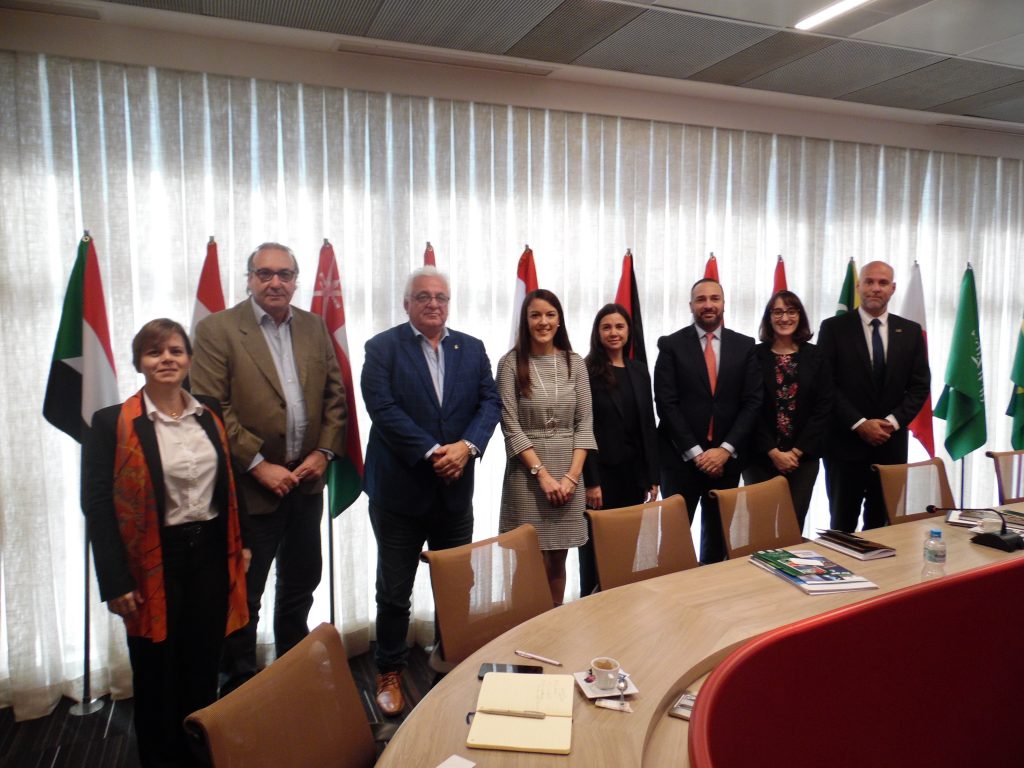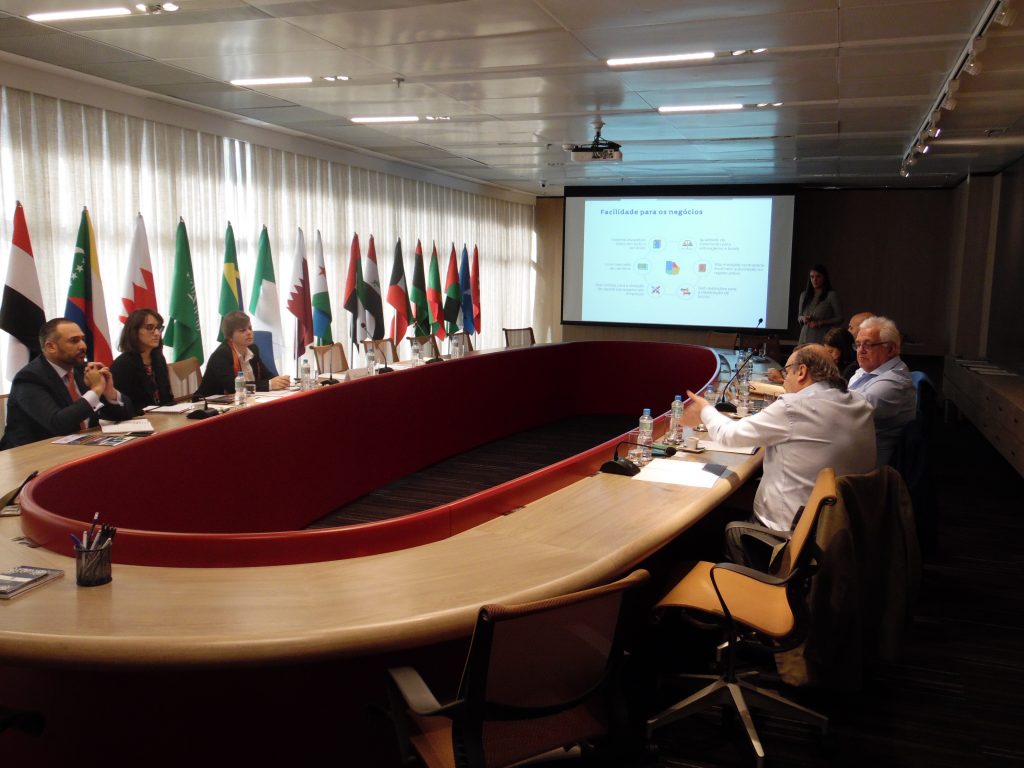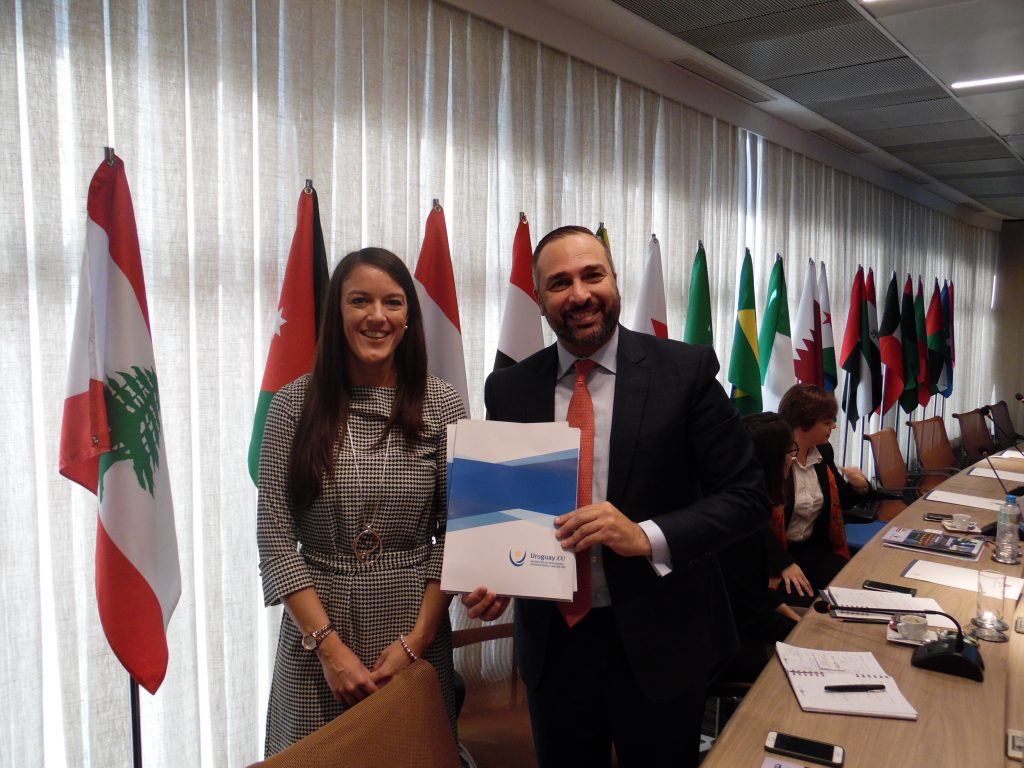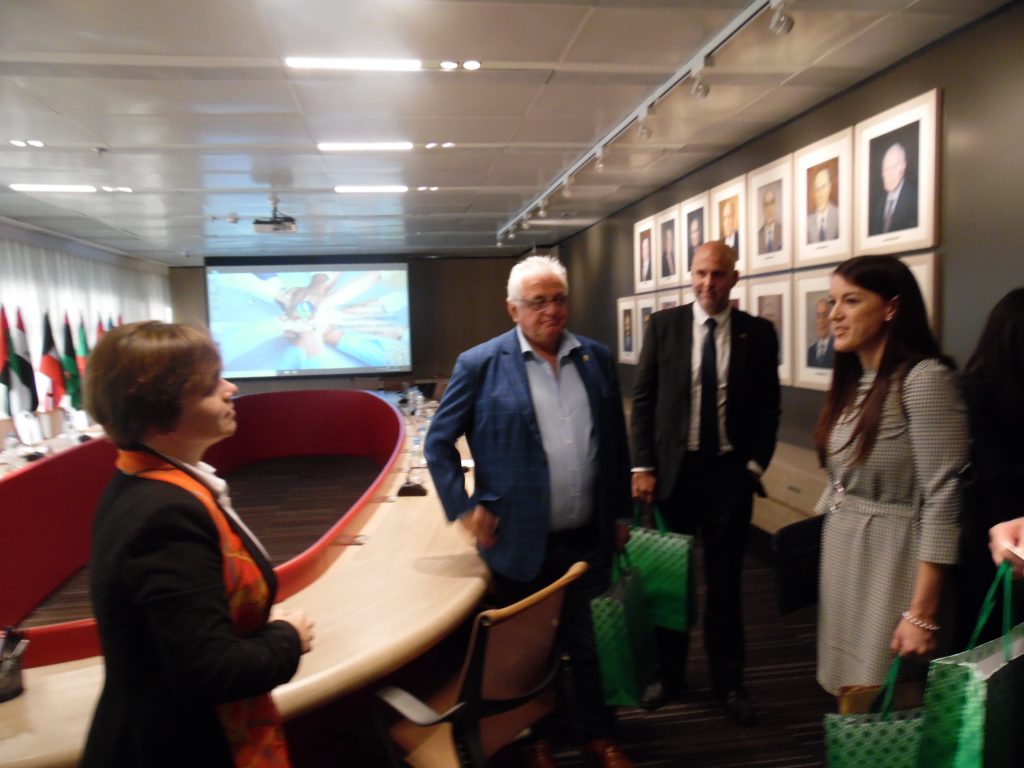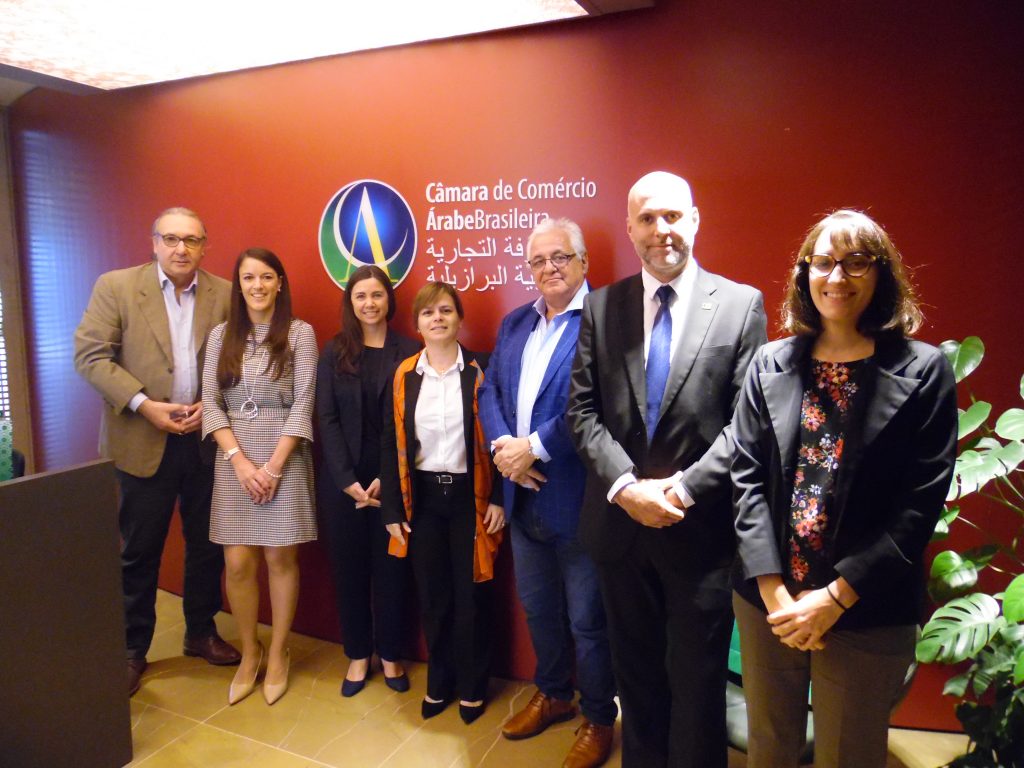São Paulo – Representatives from the Arab Brazilian Chamber of Commerce and Uruguayan official bodies started talks this Wednesday (26) for joint actions on the relations with the Arab countries. Supported by the Union of Arab Chambers, the Arab Brazilian Chamber created the Federation of South American Chambers last year and began approaching other South American countries to develop the basis for a regional work dedicated to the Arab market. The Arab Argentine Chamber of Commerce is part of this initiative.
The Arab Brazilian Chamber received Investment, Export and Country Brand Promotion Agency (Uruguai XXI) project and investment promotion manager Paola Leites de Moraes, Uruguay’s consul general to São Paulo Melissa Rosano, Government of Canelotes deputy secretary-general Francisco Legnani, Government of Canelones Investment Promotion Agency director-general Julio Fillippini, and Bruno – Arrosa & Cia director Luis Bruno Rinaldi.
The group talked with Arab Brazilian Chamber CEO Tamber Mansour, marketing and strategy director Janine Bezerra De Menezes, and business analyst Danielle Montagner Berini. Mansour told the Uruguayans that the Arab Brazilian Chamber of Commerce and the Arab Argentine Chamber of Commerce are the only ones in South America that are recognized by the Union of Arab Chambers, linked to the League of Arab States.
The CEO said that the agreement signed by the Arab Brazilian Chamber and the Union of Arab Chambers to create the Federation of South American Arab Chambers has already been validated in Argentina and Brazil, where the two chambers recognized by the Union are, and now they are looking for partners to work with in the other South American countries. The Uruguayan delegation said they are willing to cooperate with the Arab Brazilian Chamber for this integration. “It’s very important to work together as South America,” said Paola.
Mansour noted that one of the ideas is making Arab delegations traveling to South America have activities in other countries besides Brazil. “We must have strong partners to coordinate this work with businessmen in other South American countries,” Mansour told the Uruguayans. The goal is to extend the relation of the region with the Arabs, including more direct seaways and airways between South American and Arab countries.
Mansour expressed his wish to work immediately with the Uruguayans to extend the relations with Egypt, the only Arab country with which Mercosur has a free trade agreement. Uruguay, Argentina, Brazil and Paraguay are part of the Mercosur. He also talked about industries with trade growth potential with Egypt and invited the Uruguayans to participate in the Arab Brazilian Chamber actions, such as a logistics forum it will hold in partnership with the Union of Arab Chambers in December in Alexandria.
One of the reasons the Uruguayans came to the Arab Brazilian Chamber was to get closer to the Arab countries through the entity. Paola, with Uruguai XXI, said the agency has worked together with chambers from different countries. She made the Arab Brazilian Chamber staff a presentation on Uruguay. As per data she showed, Uruguay is the only investment-grade country in Mercosur, showed a 3.8% average growth per year from 2008 to 2018 and has diversified exports. Brazil is the second destination of Uruguayan foreign sales.
Despite having only 3.5 million residents, Uruguay produces foodstuffs for 30 million people and has the potential to produce for 50 million. The group presented this as one of the great advantages of the country as an international supplier. Since it has a small population, Uruguay has a large exportable surplus. In the country, an all-foreign investment is allowed, without the need of a local partner, even to buy lands for agricultural production. Uruguay has industry, logistics, services and mixed free zones. It also has Latin America’s highest literacy rate.
Canelones deputy secretary-general Francisco Legnani talked about the department he represents, which is at Montevideo metro area. “It’s a country inside a country,” he says. Legnani pointed out that Canelone accounts for 60% of the Uruguayan food production and its highlight is wine. “Our greatest asset is the legal security for the investor. The rules won’t change overnight,” he said on Uruguay.
Translated by Guilherme Miranda



